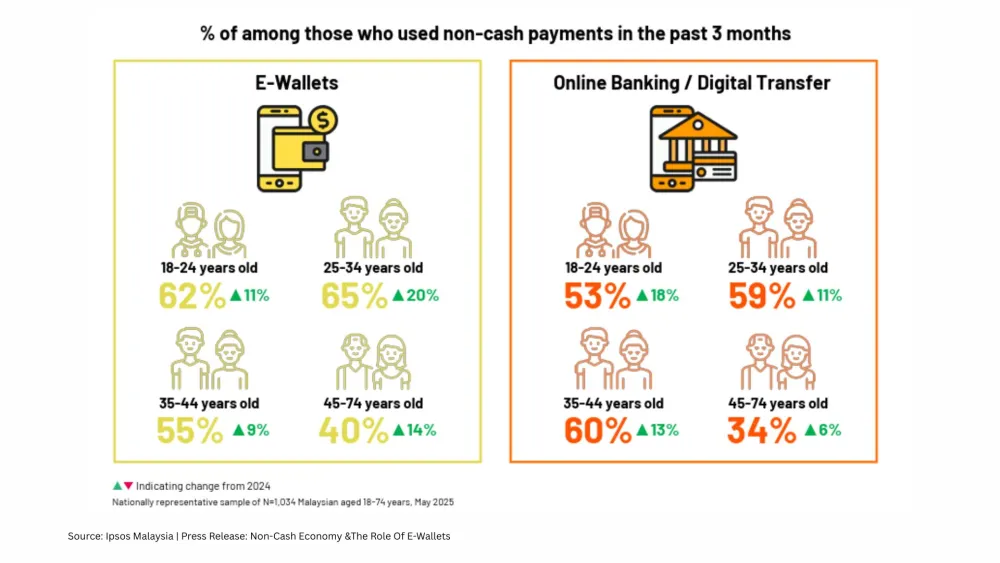The steady rise of e-payments in Singapore
By Hagen RookeThe results of a global survey published by PricewaterhouseCoopers (PwC) confirm that Asia remains the leading growth region for mobile payments. In line with other countries in the region, Singapore continues to see an increase in mobile payment usage, with the proportion of consumers making such payments growing from 34% in 2018 to 46% in 2019.
In the Little Red Dot, PwC suggests, mobile payments growth is less spectacular than in countries such as China, Thailand and Vietnam, and it may be slowed by the “sophisticated and established nature of the traditional payments ecosystem” and the “abundant and potentially confusing number of choices in mobile payments”. However, user adoption amongst Singaporeans is significant and on the rise.
The popularity of mobile payments is part of a broader surge in payment services observed across the globe, and in Asia in particular. Consumers and businesses alike are benefiting from innovation in the payments sector, where firms are competing to provide the lowest-cost remittances, highest-speed transactions, and simplest user interfaces.
So what are driving these advances?
The payments industry is being buoyed by a combination of factors, one of which is rapidly evolving technology.
Smartphone advances mean that payment services are available to anyone, at any time, at the swipe or tap of a screen. Conversely, the back-end systems which power these services (and which, to the user, remain largely obscured from view) are undergoing transformation.
Application programming interfaces, known as APIs, are improving the sharing of information and interaction between different players in the payments ecosystem, leading to a more effective and seamless user experience. APIs are integral to the concept of open banking, the sharing of customer data between banks and other industry participants to provide customers with an enhanced service offering.
In Singapore, the launch of public platforms offering APIs to developers to facilitate open banking has been spearheaded by institutions such DBS Bank, OCBC Bank, CitiBank and Standard Chartered Bank. APIs are also facilitating collaboration between financial institutions and service providers in other sectors, as illustrated by Scoot’s tie-up with United Overseas Bank to enable passengers to pay for flights via PayNow, a funds transfer system.
The quest for speed, transparency and reliability is also prompting experimentation with distributed ledger technology (DLT), a decentralised type of database best known for its role in powering bitcoin. This trend is evidenced by global tie-ups between key incumbents in the payments arena and providers of DLT solutions, such as the recent ventures between SWIFT and R3, and between IBM and Stellar, respectively.
Ripple, which has positioned itself as one of SWIFT’s key competitors, allows banks and payment service providers to affect international payments via a DLT-based network; and JPMorgan’s recently introduced JPM Coin, a US dollar-backed digital token, allows institutional clients to settle payment transactions within a fraction of the time required for conventional wire transfers.
In Singapore, the Monetary Authority of Singapore (MAS) is overseeing Project Ubin, a series of trials conducted in collaboration with industry participants and other regulators to test DLT-based payments between banks.
In the e-commerce space, Singapore-based online portal Qoo10 has launched Asia’s first DLT-based marketplace, QuuBe, which allows buyers and sellers to transact via its own digital token, the US dollar-backed Q*coin. Whilst DLT remains at an early stage of implementation and the full extent of its viability for payment services remains to be assessed, these initial deployments are illustrative of the appetite for innovative solutions in the payments sector.
Alongside technology, consumer demand is a further factor in the payments boom. Ever more users require payment solutions that support a mobile and international lifestyle. The desire to effect payment transactions in a simple and cash-free way is also hastening adoption of mobile payment technology in traditionally cash-dependent sectors.
An example of this is the rollout by payment services provider NETS of electronic payment terminals at hawker centres, canteens and coffee shops across Singapore, allowing patrons to make cashless payments through 20 different payment schemes.
To simplify the payment process, customers can use their mobile phones to scan the merchant’s Singapore Quick Response Code (SGQR), a unified payment code introduced in September 2018 which is being deployed more broadly across the island to facilitate mobile payments.
Long-established banking customers also represent a key target group for disruptive payment service providers who promise a leaner and more user-friendly experience. Challenger banks, in particular, which typically operate without physical branches and focus on technology-based financial solutions, are looking to occupy this space.
Contenders looking to make inroads into the Singapore market include Revolut (already well established as a neo-bank in the UK) and BigPay (which presently operates in Malaysia and is a spin-off of Air Asia).
A further factor in assuring efficient payment services is a well-calibrated regulatory framework.
Singapore has committed significant resources to developing balanced regulation which encourages innovation in payment services whilst addressing their specific risks. Payment services are a key focus of the Smart Nation initiative launched by Prime Minister Lee Hsien Loong in 2014, and an integral element of the Industry Transformation Map outlined by the MAS in 2017.
Following extensive industry consultation, a new regulatory framework, the Payment Services Act (PSA), is due to take effect by early 2020. The PSA will streamline existing law by allowing firms to provide multiple payment services on the basis of a single licence, and will apply a balanced and proportionate approach in addressing key regulatory concerns such as anti-money laundering risks that may arise in connection with payment flows, technology risk, and user protection.
Crucially, the PSA gives the MAS powers to require industry participants to make payment systems and wallets interoperable, should such intervention become necessary to merge digital islands in the payments landscape. Significant advances in interoperability are already being achieved, for example through the opening of Singapore's interbank instant fund transfer system (FAST) to corporates such as GrabPay and Singtel Dash.
In addition to the PSA, the MAS will continue to apply other tools to foster growth in this sector. The MAS’ E-Payment User Protection Guidelines, which require banks to provide customers with transaction notifications as well as a clear basis for resolving unauthorised or erroneous e-payment transactions, are due to take effect on 30 June 2019 and will help maintain consumer confidence in mobile payments.
The MAS has also proposed a sandbox specifically for remittance services (which would allow firms to trial their solutions in real-life conditions in a controlled environment, subject to limited regulation), and has issued guidance on the use of new technologies that will increasingly interact with mobile payments in the future, such as artificial intelligence and data analytics.
Due in part to this favourable regulatory backdrop, Singapore functions as a model of successful innovation, incubation and acceleration of payment services in Asia. Some challenges remain, for example to ensure fuller interoperability of payment systems and further reduce incentives to use cash (such as card transaction fees). Nonetheless, the industry has ample incentive to surmount these obstacles, and the future for e-payments in Singapore looks bright.
Reed Smith LLP is licensed to operate as a foreign law practice in Singapore under the name and style, Reed Smith Pte Ltd (hereafter collectively, "Reed Smith"). Where advice on Singapore law is required, we will refer the matter to and work with Reed Smith's Formal Law Alliance partner in Singapore, Resource Law LLC, where necessary.




















 Advertise
Advertise














